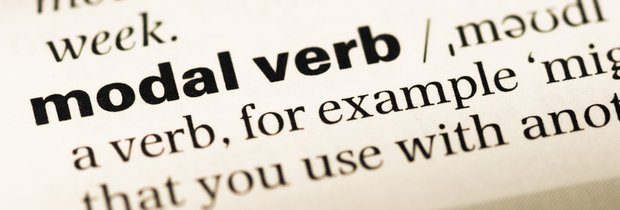Modal verbs
Add to My Folder
Modal verbs are the ‘_shoulda, woulda, coulda_’ verbs. They are used to change the meaning of other verbs, and knowing how to use them is essential for children who are about to sit the KS2 National Tests. Take a look at these tried-and-tested ideas for tackling modal verbs in the classroom.

The teaching of modal verbs is a statutory requirement within the Years 5 and 6 Programme of Study for Writing – vocabulary, grammar and punctuation:
… using modal verbs or adverbs to indicate degrees of possibility.
Support children to recognise the common usage of these verbs across a variety of genres and apply them to their own work with confidence and accuracy.
What are modal verbs?
The Glossary section of the English National Curriculum lists the main modal verbs as: will , would , can , could , may , might , shall , should , must and ought .
These are used to change the meaning of other verbs to indicate:
- degrees of possibility: it might rain tonight
- certainty: it will rain tonight
- ability: we could take an umbrella with us
- obligation: you must put your coat on
- advice: you ought to bring a raincoat
- permission: you can walk to your friend’s house.
Already a member? Sign in below.
Published 19 April 2016
Reviews
You need to be signed in to place a review.



